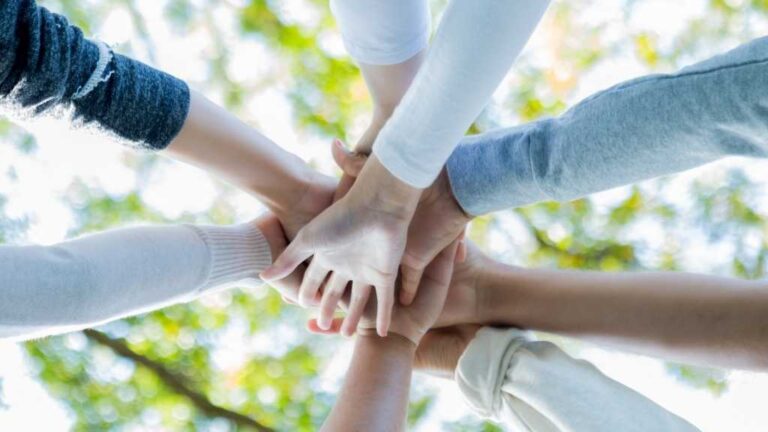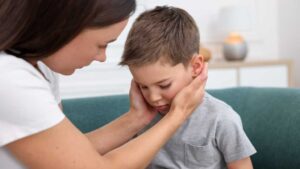Establishing a community for autism is vital for parents, allies, and caregivers affected by this complicated condition. Connecting with others who understand the autism experience improves quality of life by providing support and understanding. Community leads to human connection, which ensures no one feels as though they suffer alone.
This blog post about building a community for autism families and caregivers will explore its importance and how it can benefit anyone touched by the condition. We will also discuss ways to join a community that supports you!
Why is community important for autism caregivers?
Many people with Autism Spectrum Disorder (ASD) live relatively isolated lives, disconnected from family and community support. However, research suggests that community involvement can benefit individuals on the spectrum and their caregivers. Connection is powerful for autism because it helps ensure that every voice is heard and supported. It also provides loved ones in times of despair or celebration with an outlet for communication and helpful relationship building.
What is the power of the community for autism caregivers?
For caregivers of individuals on the spectrum, the power of the community for autism cannot be understated. Within a supportive community, caregivers can find everything they need to parent healthy neurodivergent children. The community leaves no one out and considers the needs of its population. A community for autism can be inspiring, motivating, and life-changing.
How can establishing a community for autism help parents of neurodivergent children?
Anyone with a neurodivergent loved one knows that caring for them can be a complex and overwhelming experience. Many challenges come with it, and it can be hard to find understanding and empathy from others.
However, establishing a community of people who understand autism and want to help can be incredibly helpful. After all, autism is a lifelong condition, and raising a child with the disorder can be demanding.
Fortunately, there are many potential benefits to establishing a community for autism:
· Much-needed social and recreational opportunities for people with autism
· Reduction of caregiver stress and isolation
· Sense of belonging for caregivers and parents
· Opportunities for educational growth and credit
· Autism workshops and seminars on various topics can help caregivers learn more about the condition and how to best support their child
· Lifeline in emergencies where resources are crucial or limited
· Respite care services, which provide temporary support for caregivers through activities such as babysitting or in-home health services
· Monetary support to balance the costs of caregiving
· Community members can provide practical assistance with day-to-day tasks such as grocery shopping or transportation.
When autism caregivers or parents have a robust support system, they can better cope with caregiving challenges. As a result, community involvement should be an essential part of autism care. In the face of isolation and challenges, the community for autism is a powerful force for good. Ultimately, getting involved in a community can be a valuable experience for any caregiver of someone on the autism spectrum.
How can caregivers find and join a supportive community or online forum?
You are not alone if you are a caregiver for someone with autism. There are many supportive community groups and online forums available to help you. Here are some tips on how to find and join a supportive community group or online discussion:
1. Talk to your child’s doctor or autism specialist. They may be able to recommend a specialized group or meeting that would be a good fit for you.
2. Search online for autism support groups or forums in your area. You can also search for general caregiver support groups or forums.
3. Ask friends, family, and other caregivers if they know of good groups or forums.
4. Attend conferences and events that bring neurodivergent individuals and allies together. These events provide an opportunity to learn from experts in the field and connect with other families affected by autism.
5. Once you’ve found a few potential groups or forums take some time to explore them and determine the best fit. Each group or meeting has its unique culture and atmosphere, so you must find one you feel comfortable with.
What makes up a stable community for autism?
A solid community for autism includes caregivers, allies, professionals, and others affected by autism. It’s also essential to include friends and family who understand your situation and can be reliable. A supportive community provides help, information, support, and care for those affected by autism.
What is the autism community?
The autism community is made up of individuals who are living with autism, their loved ones, and professionals who provide services or resources for people with autism. The autism community advocates for the rights of people with autism and strives to create an inclusive world and understanding of autism. The autism community also provides support and resources for individuals living with autism and their families.
This community is committed to creating a world where people with autism can live fulfilling and successful lives. The autism community welcomes anyone who loves and cares about someone with autism to participate. Parents, grandparents, siblings, cousins, and friends are all invited. One of the best things about the autism community is it’s full of allies!
What are some recommendations for autism caregivers looking for community support?
For caregivers of a neurodivergent child, here are some tips on how to find the proper support for your needs:
1. Consider what type of community you’re looking for. Will it be specific to parents or include other allies and loved ones?
2. Address the needs you want met and the topics you are eager to learn more about.
3. Select a meeting time and environment that works best for your schedule so you are consistent and can establish meaningful relationships in your time there.
Establishing a community of people who care for someone with autism can be incredibly helpful. After all, autism is a lifelong condition, and raising a child with autism can, at times, be exhaustive. Accepting support can have a vastly positive impact on your well-being and help to prevent burnout.
ABA Centers of Florida and Communities for Autism
A community for autism provides a link to emotional healing, lasting relationships, and personal growth. If you are looking for an accommodating community to join or ways to create one, these tips can help with that process. Take the time you need to find the right community and remember the value of connection while you take your next steps!
ABA Centers of Florida recognizes the value of support and community for autism families and children directly affected by the condition. By participating in events, attending support groups, or researching reliable autism content like this, you are taking steps to improve lives for future neurodivergent generations. For more information about ABA therapy and how we can support your autism journey, contact us at (772) 773-1975 for a free consultation or visit ABAcentersFL.com.








